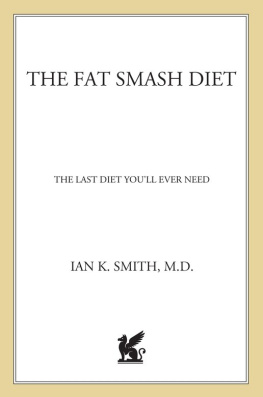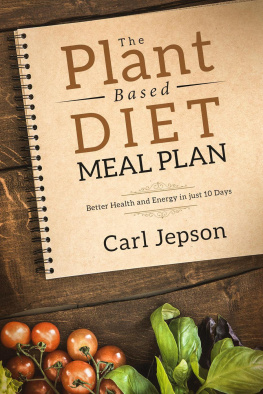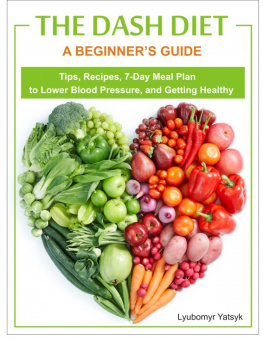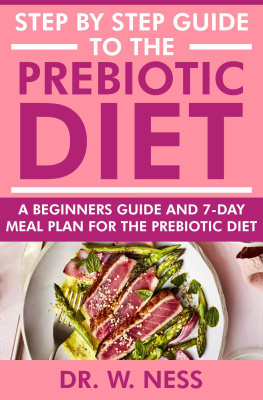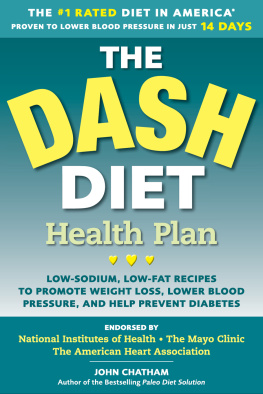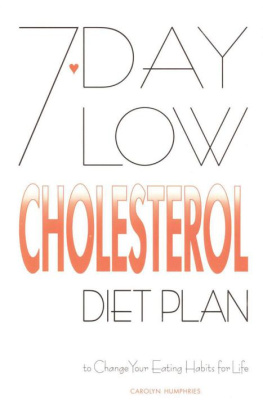Penguin Books
The Complete F-Plan Diet
As well as being the author of Britains best-selling diet of all time, The F-Plan Diet, Audrey Eyton is the woman who can justly claim to have invented that now popular feature of every magazine stall the slimming magazine. When she and her partner founded Slimming Magazine seventeen years ago it was the first publication in the world to specialize in the subject. The publication was an instant success and has continued to be the dominating bestseller despite the many rival magazines which have followed.
For many years Audrey Eyton edited Slimming Magazine herself, and later became Editorial Director. During their years of ownership (the company was sold in 1980) she and her partner also started Ragdale Hall Health Farm and founded and developed one of Britains largest chains of slimming clubs. Mrs Eyton continues to work as a consultant to the company.
During her many years of specialization in the problems of weight control and healthy eating, Mrs Eyton has worked with most of the worlds leading nutritional, medical and psychological experts. No writer has a greater knowledge and understanding of the subject.
She has a nineteen-year-old son and lives in Kensington and Kent.
Audrey Eyton
The Complete F-Plan Diet
The F-Plan
The F-Plan Calorie and Fibre Chart
F-Plus
Charts compiled and recipes devised by Joyce Hughes, B.Sc.
Research directed by Dr Elizabeth Evans

Penguin Books
Penguin Books Ltd, Harmondsworth, Middlesex, England
Viking Penguin Inc., 40 West 23rd Street, New York, New York 10010, U.S.A.
Penguin Books Australia Ltd, Ringwood, Victoria, Australia
Penguin Books Canada Limited, 2801 John Street, Markham, Ontario, Canada L3R 1B4
Penguin Books (N.Z.) Ltd, 182190 Wairau Road, Auckland 10, New Zealand
The F-Plan
First serialized in the Daily Express
First published 1982
Copyright Audrey Eyton, 1982
All rights reserved
The F-Plan Calorie and Fibre Chart
First published 1982
Copyright Audrey Eyton, 1982
All rights reserved
F-Plus
First published as Audrey Eytons Even Easier F-Plan by Allen Lane 1984
Published in Penguin Books 1985
Menus, recipes and interlinking text copyright Joyce Hughes, 1984
All rights reserved
These three volumes first published as one edition with new preface 1987
Copyright Audrey Eyton and Joyce Hughes, 1987
Except in the United States of America, this book is sold subject to the condition that it shall not, by way of trade or otherwise, be lent, re-sold, hired out, or otherwise circulated without the publishers prior consent in any form of binding or cover other than that in which it is published and without a similar condition including this condition being imposed on the subsequent purchaser
ISBN: 978-0-14-194415-9
Contents
Acknowledgements
In addition to my excellent collaborators, Joyce Hughes and Elizabeth Evans, I would like to express my warmest gratitude to Dr David Southgate of the Food Research Institute, to Derek Miller of London Universitys Department of Nutrition and to Dr Martin Eastwood of the Western General Hospital, Edinburgh, all of whom have been most generous with their help and encouragement. My thanks, too, to Sue Horsman, without whose supersonic typing I would never reach a deadline, to my research assistant, Simon Sharples B.A., and to my son Matthew who, even when I delve into the sombre depths of the lower intestine, can always be relied on to come up with the jokes.
As with all slimming diets, if you suffer from any health problems at all, or intend to follow a strict regime of less than 1,000 calories, check with your doctor before embarking on a dieting programme.
Preface
In May 1982, a large proportion of the British nation began to behave in an unprecedented and totally uncharacteristic way. They went overboard about a diet.
Such phenomena are hardly unknown in America. Indeed, they are known nearly every year as the latest diet craze hits the country. But, as far as diets are concerned, the average Brit is soundly made of much more sceptical and less easily stirred-up stuff.
But in May 1982, stirred up they certainly were. And things happened which had never happened before or since.
Never before had so many Britons embarked on the same diet at the same time they were numbered in their millions. Never before had a diet appealed to such a diverse cross-section of the population, from national leaders like Dr David Owen, who proudly revealed his personal weight loss of a stone in three weeks, to the many works canteen enthusiasts who insisted on the diet meals being included on their menus. Never before had a diet been so much talked about and written about, as the media world, from Terry Wogan to The Times, got in on the act.
The diet, of course, was the now classic F-Plan. And now it can be said that never before has a diet made such a lasting change to the eating habits of a country.
What a diet-weary public appreciated with such perception and alacrity in 1982 was that the F-Plan was not just another diet, but the revelation of a complete revolution which upturned decades of outdated theories on dieting and healthy eating.
In no way was the F-Plan simply the pet theory of its author, Audrey Eyton. The revolution in nutritional thought was already revealed in scientific papers and research findings. But to the general public the new dieting guidelines were largely unreadable, and certainly unfollowable. The F-Plan brought it all down to easily understandable terms, and showed how the new way of weight-beating and healthy eating could be wheeled through the check-point in a supermarket trolley.
Diets come, and usually go. The F-Plan does not go. Having sold more copies than the sum total of all diet books in Britain over the previous twenty years, it remains, consistently, Britains best-selling diet.
Its worth has been recognized throughout the world with at least sixteen foreign-language editions embracing cultures as far apart as Islam and Iceland. In America, the birthplace of the great dieting blockbuster, it was the first British diet ever to become a major bestseller, and is the only famous diet praised for its soundness in a new authoritative publication on the subject: The F-Plan is the direction in which national dietary recommendations are being focused, and rightly so.
Today, very many British doctors recommend the F-Plan to their patients and for very good reasons. If you are overweight it provides by far the easiest method of shedding surplus weight. All sound and healthy modern diets are simply adaptations of the F-Plan eating pattern. Those which arent are simply here-today gone-tomorrow gimmicks, or short-term crash diets. If you arent overweight it is also the diet you should be following, but without restriction on quantity of food. The F-Plan shows you how to shift the emphasis of your eating pattern from fatty food to fibre-containing food, to protect your health from todays most wide-spread serious ailments. Is it a slimming diet or a health diet? The answer is: both.
Since The F-Plan was first published it has been followed by two partner publications, The F-Plan Calorie and Fibre Chart and F-Plus. The former shows you how to work out your own daily menus, sufficiently high in fibre and low in calories to shed weight and improve health. The latter provides a side selection of daily F-Plan menus ready-planned for you.


